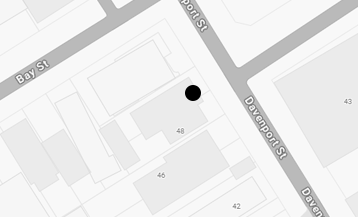Receiving a notice to attend a coercive hearing at the Australian Crime Commission (ACC) can be an incredibly stressful experience. At Hannay Criminal Defence, we have seen firsthand the confusion, anxiety, and uncertainty that clients face when they receive such a notice. The coercive hearing process is complex, and the potential consequences of not seeking proper legal advice early on can be severe.
Understanding the Australian Crime Commission and Coercive Hearings
The Australian Crime Commission is a national-level law enforcement agency that focuses on investigating serious and organised crime across Australia. Unlike state-level agencies such as the Crime and Corruption Commission (CCC) in Queensland, which primarily deals with corruption and major crime within the state, the ACC targets criminal activities that have a national or international scope. This includes offenses such as drug trafficking, money laundering, human trafficking, and other significant criminal operations that may cross state or international borders.
One of the most powerful tools at the ACC’s disposal is the coercive hearing. Coercive hearings are a unique investigative mechanism that allows the ACC to compel individuals to attend and answer questions under oath. These hearings are designed to gather critical information and evidence that may not be obtainable through traditional policing methods.
It is crucial to understand that coercive hearings are not criminal trials. They are investigative proceedings that aim to uncover information that can assist the ACC in their investigations. However, the information obtained during a coercive hearing can be used to further investigations and may ultimately lead to criminal charges being laid.
Consequences of Not Attending a Coercive Hearing
If you receive a notice to attend a coercive hearing, it is essential that you grasp the seriousness of the situation. Failing to attend a hearing when summoned by the ACC can result in severe penalties, including imprisonment. You are legally obliged to attend the hearing and answer the questions put to you, unless you have a valid reason for not doing so.
It is important to note that the right to remain silent, which is a fundamental protection in criminal proceedings, does not apply in coercive hearings. You must answer the questions asked, even if you believe that your answers may incriminate you. However, there are certain legal protections available, which we will discuss later in this article.
Immediate Steps to Take Upon Receiving a Notice
1. Seek Legal Advice Immediately
The single most important step you should take upon receiving a notice to attend a coercive hearing is to seek legal advice from an experienced criminal defence lawyer. At Hannay Criminal Defence, we have extensive experience in advising and representing clients in coercive hearings before the ACC. We understand the intricacies of the process and can guide you through every step of the way.
Contacting a lawyer as soon as possible is crucial, as it allows us to intervene early and start preparing your case. The earlier we are involved, the more time we have to review the notice, gather relevant information, and develop a strategic approach to protect your rights and interests.
2. Understand Your Obligations
When you receive a notice to attend a coercive hearing, it is essential that you carefully read and understand your obligations. The notice will outline the scope of the investigation, the specific matters that will be addressed, and any documents or materials that you are required to bring with you.
At Hannay Criminal Defence, we will thoroughly review the notice with you and explain your obligations in detail. We will help you understand the nature of the hearing, what you can expect during the process, and how to respond to the questions that will be asked.
3. Preparation is Key
Preparing for a coercive hearing is critical to ensuring the best possible outcome. At Hannay Criminal Defence, we will work closely with you to develop a comprehensive preparation strategy. This may involve:
- Gathering and reviewing relevant documents and evidence
- Identifying any potential legal issues or challenges
- Assessing the potential ramifications of your answers
- Developing a clear and concise approach to responding to questions
- Conducting mock hearings to familiarise you with the process and types of questions you may face
Our goal is to ensure that you are as prepared as possible and feel confident going into the hearing.
4. Understanding Your Legal Protections
While you are required to answer questions during a coercive hearing, there are certain legal protections available to you. One of the most important protections is the privilege against self-incrimination. By invoking this privilege, you can prevent your answers from being used against you in criminal proceedings, subject to certain limitations.
However, it is crucial to understand that claiming the privilege against self-incrimination does not excuse you from answering questions altogether. You must still answer the questions put to you, but your answers cannot be used as evidence against you in a criminal trial.
At Hannay Criminal Defence, we will carefully assess your situation and advise you on the most appropriate way to exercise your legal rights and protections. We will ensure that you understand the implications of invoking any privileges and guide you through the process of doing so.
5. Maintaining Confidentiality
Coercive hearings are highly confidential proceedings. It is a criminal offense to disclose any information about the existence of the notice or the content of the hearing to anyone other than your legal representative. This includes discussing the matter with family members, friends, or colleagues.
Maintaining strict confidentiality is essential to avoid potential legal consequences and to protect the integrity of the investigation. At Hannay Criminal Defence, we will advise you on your obligations regarding confidentiality and ensure that you understand the importance of maintaining the secrecy of the proceedings.
How Hannay Criminal Defence Can Assist You
At Hannay Criminal Defence, we are dedicated to providing our clients with the highest level of legal representation and support. Our team of experienced criminal lawyers has a deep understanding of the coercive hearing process and the strategies required to navigate it effectively.
When you engage our services, we will:
- Provide tailored legal advice specific to your unique circumstances
- Analyse the notice and any relevant information to identify potential risks and opportunities
- Develop a robust legal strategy to protect your rights and minimise any potential adverse outcomes
- Guide you through the preparation process and ensure that you are fully equipped to handle the hearing
- Represent you during the hearing and provide ongoing support and advice throughout the process
We understand that facing a coercive hearing can be a deeply stressful and intimidating experience. Our goal is to alleviate your concerns, provide clarity and guidance, and fight tenaciously to protect your interests.
Conclusion
Receiving a notice to attend a coercive hearing at the Australian Crime Commission in Brisbane is a serious matter that requires immediate action and experienced legal representation. The consequences of not attending or not properly preparing for the hearing can be severe, including potential imprisonment.
If you find yourself in this situation, the most important step you can take is to seek the advice and assistance of a skilled criminal defence lawyer. At Hannay Criminal Defence, we have the knowledge, experience, and dedication required to guide you through the coercive hearing process and ensure that your rights are protected at every stage.
If you have received a notice to attend a coercive hearing, do not hesitate to contact Hannay Criminal Defence immediately. We are here to help you navigate this complex process, and to provide you with the support and guidance you need.








